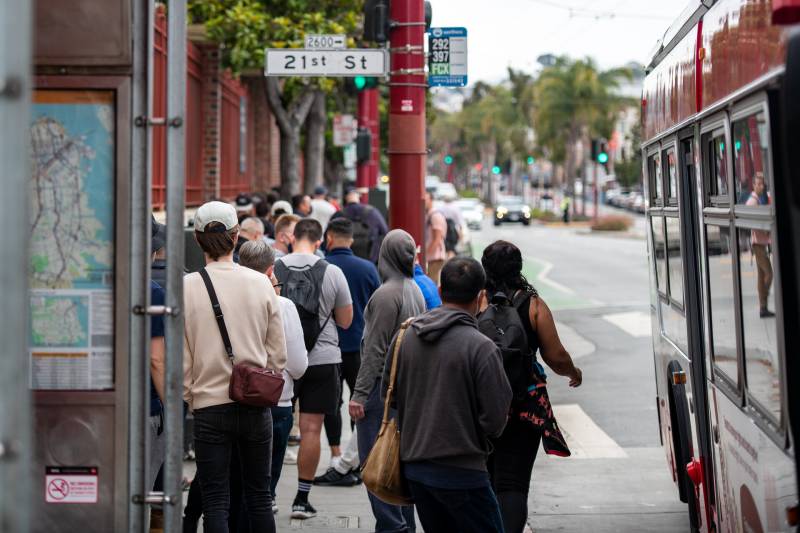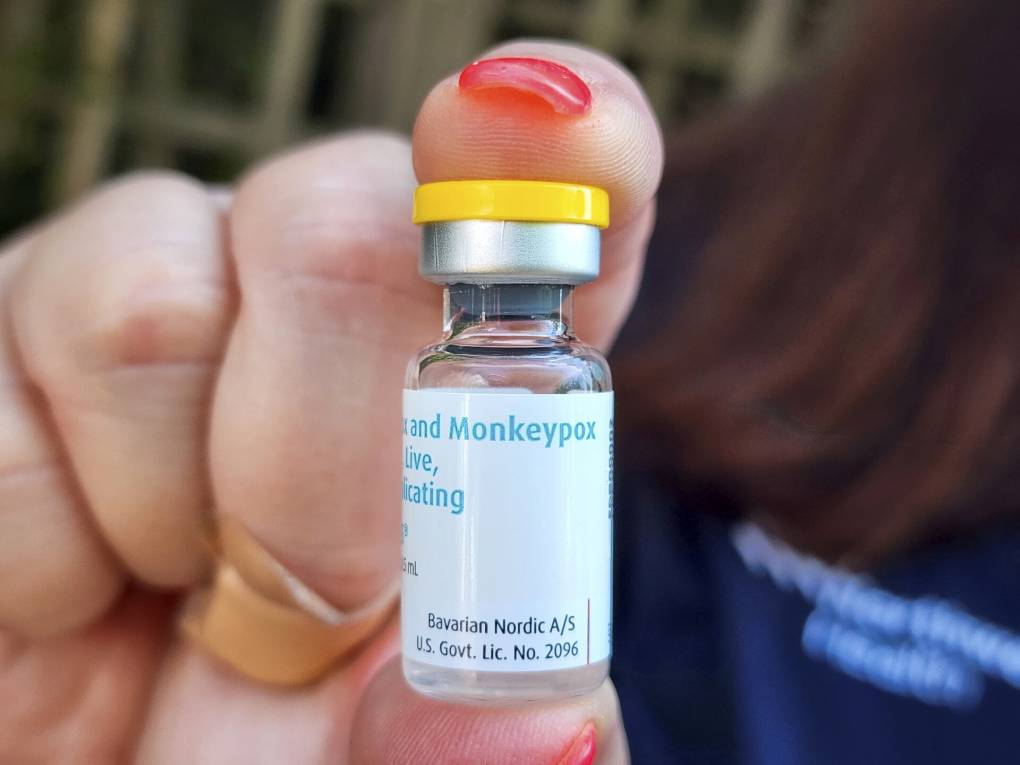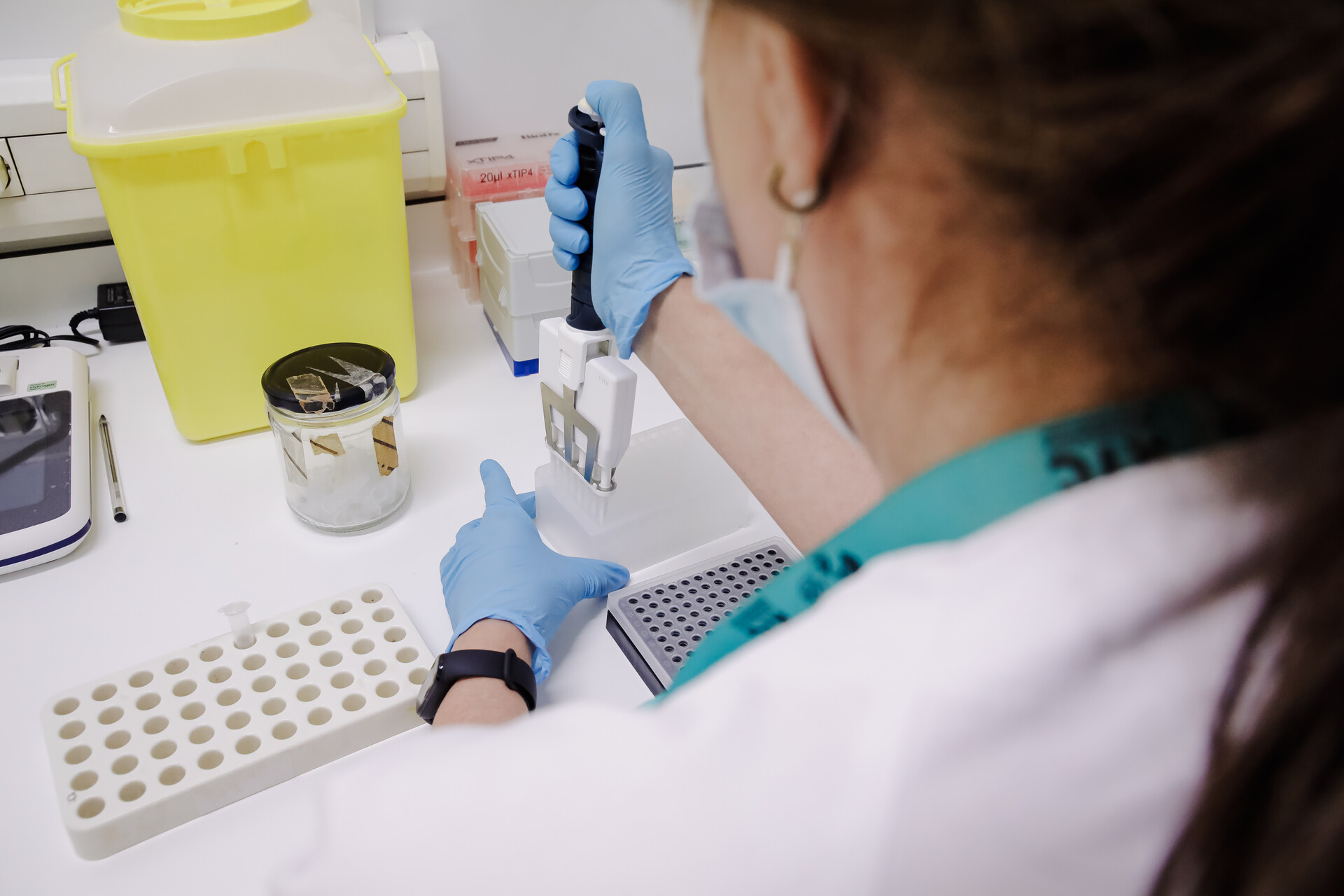Hundreds of people have lined up for multiple blocks every day this week to receive the monkeypox vaccine at a walk-in clinic at the Zuckerberg San Francisco General Hospital and Trauma Center, the city’s main public hospital.
With California and the city of San Francisco declaring a public health emergency over the growing number of monkeypox cases, officials say more vaccine doses should be arriving soon. But demand is high and supply remains low.
Officials said the city received about 4,000 doses at the end of last week. The ZSFG was able to administer 650 doses Tuesday, according to the San Francisco Public Health Department. More people lined up Wednesday, some getting there as early as 6:30 a.m., and all available doses there were assigned by about 9 a.m. Officials said another allotment of more than 10,000 vaccines is expected, but it’s unclear when those will arrive.



